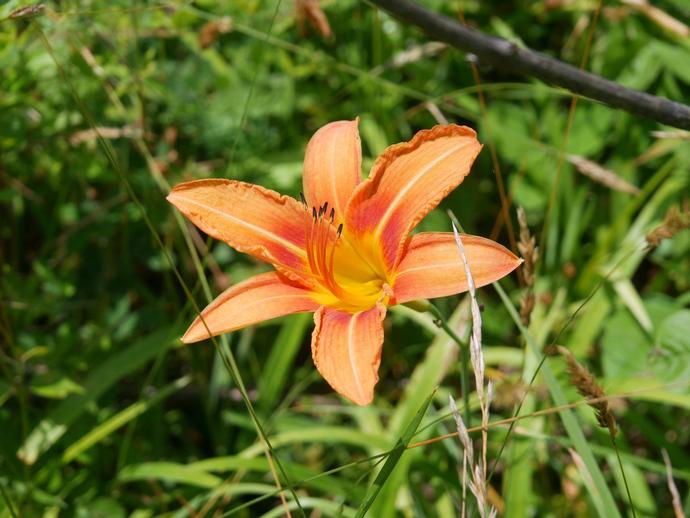June 27, 2020
At the risk of revealing how the sausage is made, I have a confession to make: I am not actually a walking encyclopedia of nature knowledge.
When I write these posts, I often have to consult an expert to identify the plant or critter I've photographed, and then once I know what I have, I research it and learn all about it. At other times, I'll THINK I know all about the thing I've photographed only to do some research and discover that I didn't know as much as I thought I did.
Case in point: Hemerocallis fulva, better known as the orange daylily or tiger daylily (or the ditch lily, if you're feeling less charitable). I had always thought these beautiful flowers were native to the U.S.; as it turns out, they're an invasive species from Asia!
Back in the late 19th century, these daylilies were imported from Asia to serve as ornamentals in American gardens. It's easy to see why, since they're attractive, hardy perennials that offer colorful blooms in the summer.
The problem, of course, is that they're a bit TOO hardy, and they tend to invade meadows, stream banks, forest edges, and roadsides. They spread quickly and form dense patches that overtake native plants, and their thick roots make them difficult to control.
In a further surprise, the orange daylily isn't even a true lily! The flowers look similar and like true lilies, each flower only lasts a single day, but beyond that, they're not closely related.
If you like the look of these flowers but want to plant something more environmentally friendly, I recommend the Turk's cap lily, Lilium superbum. It's a true lily; it's native to Virginia; it attracts hummingbirds; and for my money, it's the more attractive flower. Just be careful if you have cats; Lilium superbum is extremely toxic to felines (although the orange daylily is not). #BenInNature
This post brought to you by VMNH Corporate Supporter Bassett Furniture.
ABOUT THIS POST
Social distancing can be difficult, but it presents a great opportunity to become reacquainted with nature. While he is working from home, Administrator of Science Ben Williams is venturing outdoors each day to record a snapshot of the unique sights that can be found in the natural world.
NATURE PHOTO IDENTIFICATIONS
If you discover something in nature that you would like help identifying, be sure to message us right here on Facebook with a picture (please include location and date of picture) and we'll have our experts help you identify it!

 Hours & Admissions
Hours & Admissions Directions
Directions

